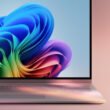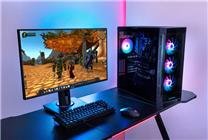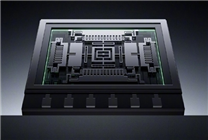Unlocking Speed: Enhancing Mechanical Hard Drives with Software Solutions
Summary:
- Software Solutions: Alternatives to solid-state drives (SSDs) that can enhance mechanical hard drives.
- Types of Software: Cache acceleration and virtual hard disk solutions, each with unique strengths.
- Considerations: Performance improvements depend on user needs and system specifications.
With many gamers and computer users experiencing frustrating delays due to the sluggish speeds of mechanical hard drives, the rising costs of solid-state drives (SSDs) have led many to explore software alternatives for improved performance. Fortunately, various applications are available that can significantly enhance the reading and writing speeds of mechanical hard drives, often rivaling those of SSDs. But how reliable are these solutions?
Exploring Software Solutions
Many software options can indeed create a remarkable user experience, drastically increasing speed. These primarily fall into two categories: cache acceleration and virtual hard disk types. Let’s delve into each.
Cache Acceleration: The Foolproof Speed Upgrade
One of the leading examples of cache acceleration software is PrimoCache. This tool seamlessly creates a cache for complete partitions without necessitating changes to system settings, providing a transparent experience for the user. By allocating memory as a cache for older mechanical hard drives, performance metrics, particularly for 4K read and write tasks, can improve significantly, often exceeding the capabilities of mid-range SSDs.
Key Advantages:
- Intelligent Scheduling: This feature allows the software to replace low-frequency data from the cache without disturbing regular operations.
- Risk Mitigation: With delayed writing turned off, users can avoid potential data loss during unexpected power outages.
Considerations:
However, there are limitations to cache acceleration solutions. The scheduling algorithm may consume additional CPU resources and is unable to accelerate single files effectively, working instead at the partition level. Should the capacity allocated for caching be too small, performance gains could be minimal. Conversely, an overly generous allocation can monopolize system resources, leading to possible system freezes.
Virtual Hard Disk: A Trade-off for Ultimate Speed
On the other hand, virtual hard disk software, such as Ramdisk, takes a different approach. This type of software emulates memory as an independent hard disk, capitalizing on the blazing speed of RAM, which can significantly outperform even the fastest SSDs. Users can enhance their workflows by storing browser caches or temporary files from video rendering processes on this virtual disk, resulting in a substantial improvement in handling large files.
Principle Behind Performance:
The high speed observed with this type of software is a direct result of memory performance, as the mechanical hard drive’s capabilities are effectively overshadowed once the system relies on RAM. However, should the allocated memory fill up, the system will revert to the mechanical hard drive’s speeds.
For older computers, particularly those with DDR3 memory, leveraging the relatively low prices of memory modules to maximize capacity can be an advantageous move. Allocating a significant portion of this memory for caching can lead to marked enhancements in overall system speed.
Limitations:
It’s essential to note that if a computer is equipped with minimal RAM or is heavily multitasked, reserving memory for caching could detract from the performance of other applications. In such scenarios, utilizing virtual hard disk software may not be advisable.
Conclusion
For users looking to enhance the performance of mechanical hard drives without investing in costly hardware upgrades, software solutions can offer a viable path. With cache acceleration tools providing transparent speed boosts and virtual hard disk applications delivering impressive performance gains, there’s a wealth of options to explore.
Ultimately, the best choice depends on your specific needs and the capabilities of your computer system. By evaluating these solutions carefully, you can determine how best to optimize your setup for a smoother, faster computing experience.








